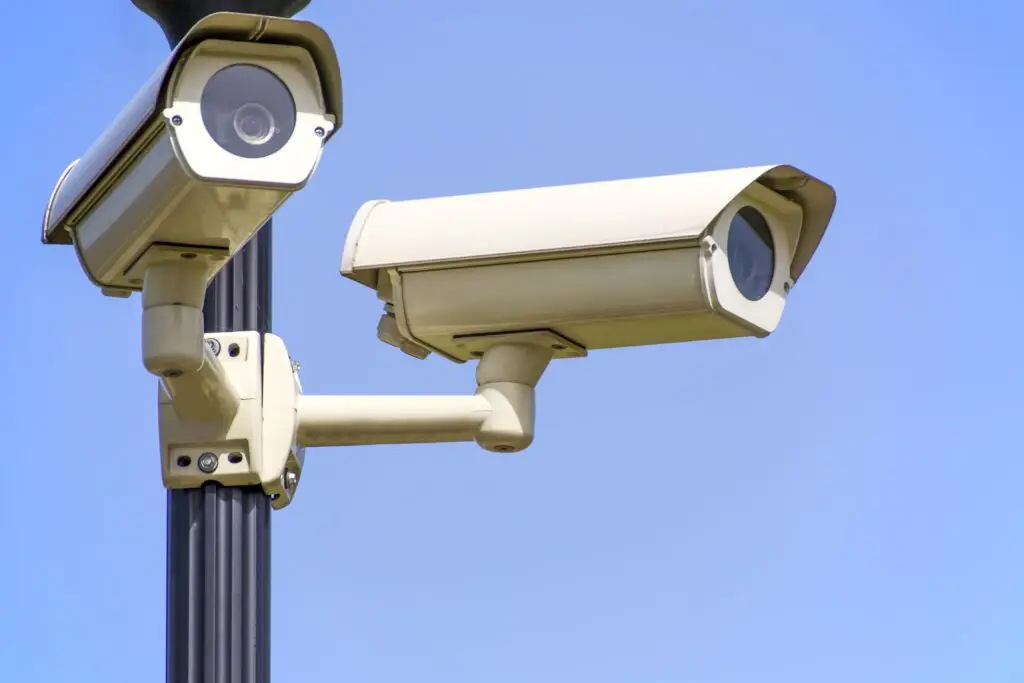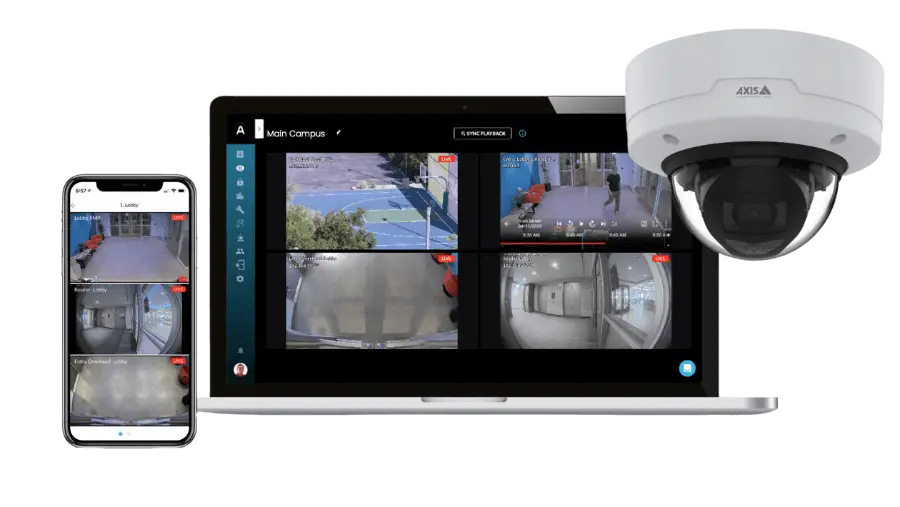In the realm of commercial security, the choice of a video recording system plays a pivotal role in safeguarding businesses against potential threats. Whether you’re a small retail store or a large corporate office, selecting the right technology is crucial for comprehensive surveillance. One of the most significant decisions businesses face is choosing between a Network Video Recorder (NVR) and a Digital Video Recorder (DVR). This guide aims to shed light on the NVR vs. DVR comparison, helping businesses make informed decisions tailored to their security needs.
NVR vs DVR: How are they different?
Before delving into the specifics, it’s essential to understand the fundamental differences between NVR and DVR systems. NVRs and DVRs serve as the backbone of modern video surveillance, each with unique features catering to different security system requirements.
An NVR system is characterized by its network-based recording capabilities. They operate with IP cameras, which transmit digital video signals over an Ethernet cable. This enables high-resolution support, remote viewing, centralized management, and intelligent search and playback functionalities. NVRs are often favored in industries where the demand for clear, detailed video footage is paramount, such as in casinos, banks, or high-security government facilities.
On the other hand, a DVR security system works with analog cameras, processing and storing video signals locally. They are known for their cost-effectiveness, simplified installation, and real-time recording capabilities. While DVRs may not offer the same level of scalability and resolution as NVRs, they can still be a viable option for businesses with existing analog camera infrastructure.
How Does an NVR System Work?
An NVR system operates on a network-based recording model, leveraging an IP camera and Ethernet networks for video transmission and storage. The key components include:
Network-Based Recording: NVRs use IP cameras to capture and transmit digital video data over an Ethernet cable, ensuring high-quality video storage.
High-Resolution Support: With the ability to handle high-resolution video footage, NVRs provide clear and detailed image quality, crucial for identifying potential security threats.
Remote Access: NVR systems allow users to access live and recorded footage remotely, enhancing monitoring capabilities and flexibility.
Centralized Management: Multiple cameras are managed and controlled centrally, streamlining the monitoring process for large-scale security setups.
Intelligent Search and Playback: NVRs facilitate quick and efficient search and playback of specific incidents, saving time during investigations.
Industries such as finance, healthcare, and critical infrastructure often prefer NVR systems due to their advanced features and capabilities.

How Does a DVR System Work?
DVR systems, on the other hand, cater to businesses with analog camera setups. Key components and functionalities include:
Analog Camera Compatibility: DVRs are designed to work seamlessly with an analog security camera, making them a suitable choice for businesses with existing infrastructure.
Local Recording: Video signals are processed and stored locally, eliminating the need for extensive network infrastructure.
Cost-Effective Solution: DVRs are often more budget-friendly, making them an attractive option for businesses with cost constraints.
Simplified Installation: Installing DVR systems is relatively straightforward, making them accessible for businesses without extensive technical expertise.
Real-Time Recording: DVRs excel in real-time recording, ensuring that events are captured and stored promptly.
While DVRs may lack some of the advanced features of NVRs, they are still effective in scenarios where high scalability and resolution are not immediate priorities.
Which is Better: Pros and Cons
When deciding between NVR and DVR systems, businesses should carefully weigh the pros and cons of each:
NVR:
Pros: Better resolution, scalability, remote access, and centralized management.
Cons: Limited compatibility with specific cameras.
DVR:
Pros: Cost-effective, straightforward installation, real-time recording.
Cons: Limited scalability, lower video quality compared to NVRs.
To further elevate the effectiveness of NVRs and DVRs, businesses can integrate video analytics into their security systems. Video analytics enhances the capabilities of surveillance by providing intelligent insights into security footage. Arcules, a leading Video Surveillance as a Service (VSaaS) provider, offers advanced video analytics solutions suitable for various industries.
Arcules’ Video Analytics includes features such as:
Object Recognition: Identify and categorize objects captured by surveillance camera system.
Motion Detection: Receive real-time alerts for suspicious movements within the camera’s field of view.
People Counting: Monitor foot traffic and occupancy levels in specific areas.
By integrating video analytics, businesses can enhance their proactive security measures and
respond promptly to potential threats.

Making an Informed Decision
In the dynamic landscape of commercial security, choosing between NVR and DVR systems is a critical decision that directly impacts the effectiveness of surveillance. Understanding the differences and assessing the specific needs of your business is paramount. NVRs excel in providing high-resolution, scalable solutions with advanced features, while DVRs offer cost-effective simplicity for businesses with analog camera setups. By integrating video analytics, businesses can further enhance the capabilities of both systems, ensuring a comprehensive and proactive approach to security. Ultimately, the right choice depends on the unique requirements and priorities of each business, and this guide aims to empower businesses with the knowledge needed to make informed decisions tailored to their security needs.
FAQs
Which is better: NVR or DVR?
The choice between NVR and DVR depends on specific business needs. NVRs offer better resolution, scalability, and advanced features, while DVRs are more cost-effective and suitable for businesses with analog camera setups.
Can NVR work without the Internet?
Yes, NVRs can function without an internet connection for basic recording and monitoring. However, remote access and some advanced features may require an internet connection. Consider a cloud-based solution for these advanced features.
Are NVRs reliable?
NVRs are generally reliable, providing high-quality video storage and management. However, like any technology, their reliability can be influenced by factors such as system maintenance, quality of components, and proper installation.
Can analog cameras work with NVR?
Analog cameras are not directly compatible with NVRs. NVRs are designed to work with IP cameras that transmit digital signals over Ethernet cables. However, there are converters available that can bridge the gap between analog cameras and NVR systems, enabling their integration.
To learn more about how a hybrid cloud video surveillance system can enhance the security of your business, visit the Arcules Cloud Surveillance Solutions page and schedule your FREE consultation.
